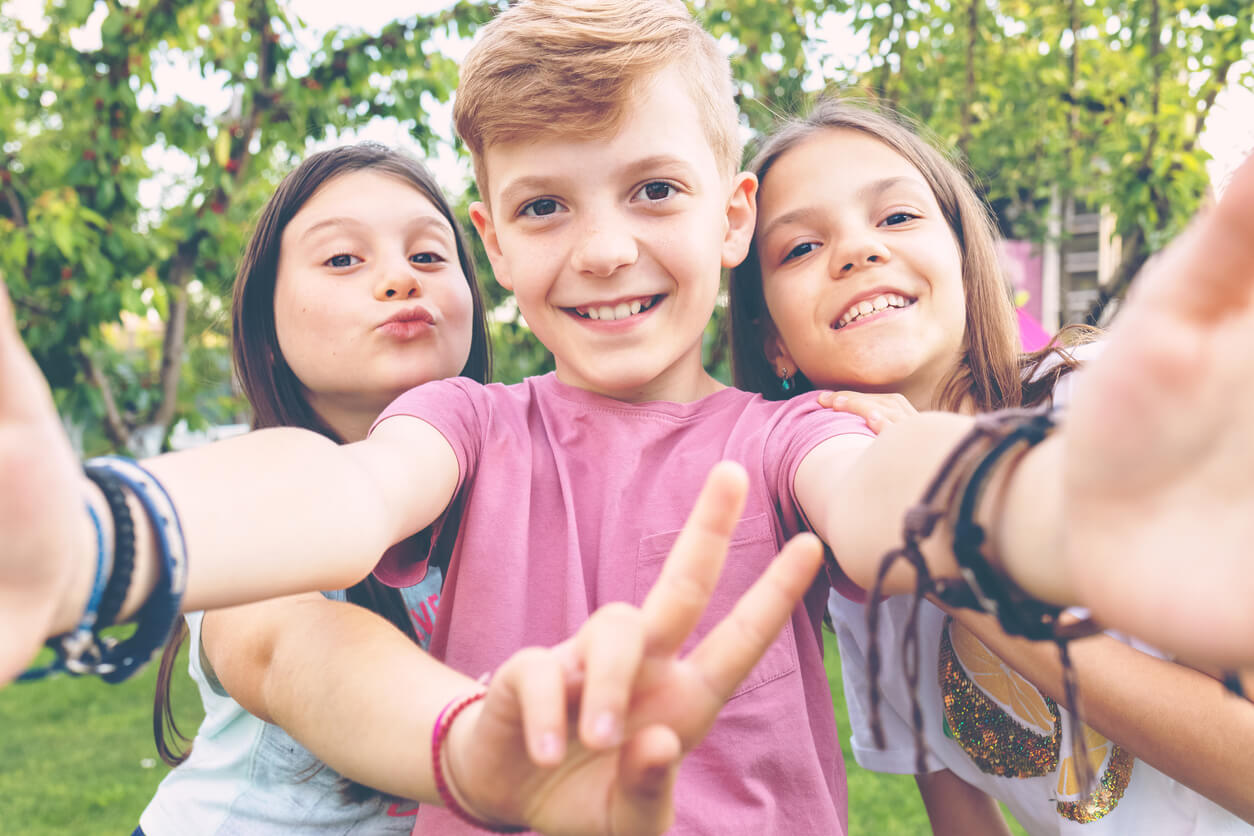Characteristics of Extroverted Children

One thing for sure is that extroverted children are neither more nor less happy than introverted children. Although it’s true that today’s society seems to reward and design its spaces around extroversion, this type of temperament is neither positive nor negative in itself . The connotation will depend on the individual child and the way they function in the world.
Extraversion is a classic dimension in personality psychology. The Swiss psychiatrist Carl Jung explains that this term refers to a type of attitude characterized by an interest in the external. He also clarifies that these people “recharge their energy” by connecting with others, while introverts get their energy from being alone.
Restless, impulsive, sociable, and fun: According to social imaginary, this is what extroverted children are like. So, what are the advantages and disadvantages of tending toward this personality trait? In this article, we’ll answer all these questions.
The main characteristics of extroverted children
In the following paragraphs, we’ll focus specifically on extroversion in childhood, its most common manifestations, and its preferences and difficulties.
1. They enjoy being in contact with other people
Extroverted children feel at ease when they’re with others. They also integrate quickly into new and unfamiliar groups. Generally, they have no problem with being the center of attention and have an easy time opening up to others.
However, this aspect can lead to some drawbacks when it comes to connecting with themselves, as it’s not so easy for them to have moments of introspection or to spend time alone. At the same time, the usual optimistic and talkative attitude sometimes makes it difficult for them to freely express emotions such as sadness or distress.

2. They’re not inhibited by crowds
Contexts with large crowds of people don’t represent any threat to extroverted children. In fact, they usually have no difficulty speaking in public, taking leading roles in school events, or participating in class.
Although introverted children can also be group leaders, extroverted children have more developed social skills. Therefore, it’s not surprising that they take on leadership roles in sports or other team settings. In addition, they have a great capacity to transmit motivation and inspiration.
3. They like to be on the move
A very characteristic aspect of these children is that they tend to be very restless. They enjoy doing several activities a day, even if each of them involves only a short time. At the same time, in social gatherings, they tend to jump from conversation to conversation very quickly and comfortably, which stimulates and excites them.
They like to meet new and different people. However, although they’re excellent talkers, they may find it difficult to practice active listening. They’re able to adapt to different topics of conversation, as they make quick, though less profound, associations. In fact, they often speak and act impulsively, without stopping to think.
4. They’re optimistic
Extroverted children commonly perceive the world from an optimistic perspective. That is, they see and judge things from their most favorable aspect. This point of view helps them to achieve success in different aspects of life, such as social, academic, and even health aspects.
Seeing the glass as half full contributes to a favorable adaptation to new environments and challenging situations. Extroverted people tend not to focus on the negative or unfavorable aspects of things, which enhances their productivity and ability to resolve conflicts.

5. They find it easy to make friends
Extroverted children tend to have large and very diverse groups of friends. Even when they’re small, we may notice how some children approach others with kindness and enthusiasm even when they’ve never seen them before, for example, in a park or in a shopping mall. Therefore, it’s enough for them to have a good time with them and have fun, even if they never cross paths again.
Children aren’t 100 % extroverted
Jung is the one who popularized the terms introversion and extroversion to talk about different modes of psychological orientation. He explained that no person is 100% introverted or extroverted, but that there’s a predominance toward one or the other . In fact, the same subject may present a more introverted attitude in a specific situation and context and a more extroverted position in another.
In this regard, we understand that the most interesting and healthy alternative for children is to seek a balance so that they can assume the most convenient disposition in each situation.
All cited sources were thoroughly reviewed by our team to ensure their quality, reliability, currency, and validity. The bibliography of this article was considered reliable and of academic or scientific accuracy.
- Jung, C. G. (1971). Tipos psicológicos (R. F. C. Hull, Trans. 2ª ed. Vol. VI). Princeton, NJ: Princeton University Press.
- Reyes Conforme, K. Y. (2013). Habilidades sociales de los niños de 4 a 5 años seguros y extrovertidos (Bachelor’s thesis, Universidad de Guayaquil Facultad de Filosofía, Letras y Ciencias de la Educación).
